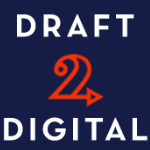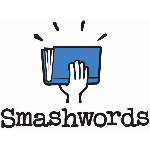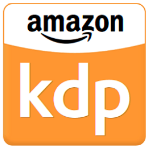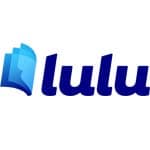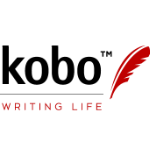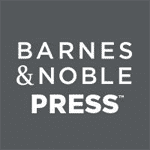Best eBook publishing platforms 2023
Fancy publishing your own eBook but have no idea how to do it? We'll take you through the best publishing platforms that make the process super easy.

Credit: skyNext – Shutterstock
eBooks are so popular these days. More people than ever are becoming self-published authors. As a result, there are loads of different eBook publishing platforms to choose from.
These sites essentially provide a space for you to advertise and sell copies of your eBook. They all work slightly differently and each will take a small percentage of the profits.
We review and rank some of the best publishing sites below.
What’s in this guide?
Top 6 eBook publishing platforms
Many authors upload their eBook to Amazon KDP, and then to an aggregator site to reach other retailers. But don't go crazy. The more platforms you have to deal with, the more of your time it'll require. There's also no point in submitting your book to the same stores more than once.
This is our round-up of the top publishing platforms for eBooks, but we'd recommend you check them (and others) for yourself:
-
Draft2Digital
- Cost – Free
- Royalties – Up to 60%.
Draft2Digital is one of the best platforms to publish your eBook. They hit all the main stores like Amazon, iBooks, Barnes & Noble and Kobo.
Draft2Digital gives you an author’s page and book tabs, which you could use instead of making your own website. On top of that, the handy sales tracker gives you insight into how well your books are selling.
The best thing about Draft2Digital is its automated formatting service. This turns your basic Word document into a smart, professional eBook for free.
In early 2022, Draft2Digital announced they were merging with their big competitor Smashwords (more on their platform below). Until the merger is complete, the platforms will continue to work under their own name. For the time being, you can continue to use both platforms as usual.
-
Smashwords
- Cost – Free
- Royalties – 60% from retailer, up to 85% from Smashwords Store.
Smashwords is one of the best eBook aggregator sites out there. If you upload your book with them, it'll reach Apple Books, Barnes & Noble, Kobo and loads more retailers and library networks.
They offer you a free ISBN if you want one. On top of that, they provide you with daily sales reporting from the biggest stores so you can track how well your book is doing.
You'll earn 60% of any sales through a retailer, as Smashwords takes a small cut too. When sold through the Smashwords Store, you'll earn 85% (70.5% for affiliate sales).
As mentioned above, Smashwords was acquired by Draft2Digital in early 2022. While they are working on integrating both platforms, you can continue using them as usual.
-
Amazon Kindle Direct Publishing (KDP)
- Cost – Free
- Royalties – Up to 70%.
Amazon sells an absolutely HUGE number of eBooks, so their publishing platform, Amazon KDP, is massively popular too. Through it, you're able to reach a vast audience.
The platform accepts a number of different file formats. But ultimately they all end up converted into a Kindle book for sale only on Amazon. KDP gives your book a free ASIN, which works like an ISBN.
The optional KDP Select programme offers higher royalties and promotional tools. However, you have to make your title exclusive to Amazon (meaning you won't be able to sell your book anywhere else in digital form).
Otherwise, you'll receive 70% in royalties for books sold within "70% territories" (a select number of countries), and 35% for books sold outside of those countries.
KDP also offers a couple of bits of free software if you want to publish illustrated books. You can use Kindle Kids’ Book Creator for picture books and Kindle Comic Creator for graphic novels and your hand-drawn masterpieces.
-
Lulu
- Cost – Free
- Royalties – 80%.
Lulu is an up-and-coming eBook aggregator site. It will distribute your eBook to all the major retailers (including Amazon).
However, unlike Draft2Digital, they won't help you out with formatting and your book has to pass their Quality Assurance test to be accepted. As such, unless you're confident in doing this yourself, you might be better off going elsewhere.
-
Kobo Writing Life
- Cost – Free
- Royalties – Up to 70%.
Kobo is a pretty big eBook retailer. Although it's not on the same level as Amazon or Apple, Kobo is available in over 190 countries.
They'll convert your manuscript into EPUB format. And as long as your book is priced at £1.99 or more (or equivalent), you'll receive 70% of your book's listed price. Any books cheaper than that will earn you 45%. Plus, you're still free to publish your books elsewhere if you like.
-
Barnes & Noble Press
- Cost – Free
- Royalties – 70%.
Formerly Nook Press, this is the official Barnes & Noble eBook publishing site. They're a huge retailer in the US and have a big audience here in the UK too.
You'll make 70% off any eBook priced between $0.99 – $199.99. This means that you'll earn more distributing directly through B&N rather than via an aggregator site. That said, uploading your books to individual retailers is more hassle.
You'll benefit from all the extra promotion that comes with being on the B&N site (they have millions of customers). They also offer an easy-to-navigate dashboard so you can track sales.
Where should you publish your eBook?

When choosing a publishing platform, there are a whole host of different things to consider. Firstly, most publishing sites will fall into one of the following two categories:
- They sell books direct to readers – These sites function as eBook retailers (online shops) as well as publishers. They include the likes of Amazon and Barnes & Noble.
- They distribute your eBook to a number of retailers – Known as aggregators, these sites will distribute your book to a number of retailers, including the ones listed above.
The second option sounds more appealing (surely more retailers means more customers, right?), but bear in mind they normally take a slice of your earnings. Also, remember that a huge proportion of eBook sales are through Amazon alone.
How do you choose a platform that’s right for you? As with anything, look at a few and compare their key features:
- How much do they charge for converting or hosting your book (most don’t charge anything)?
- Do you need your own ISBN number?
- Can you submit your book as a Word document?
- Which formats will your book be converted to? EPUB (short for 'electronic publication') is the most common and versatile eBook format, but some sites may use different ones.
- How long does conversion take?
- Can you download the converted EPUB if you need to (it's handy for marketing purposes)?
- Can you transfer it to another publishing platform if you want to later on?
- How long will it take for your book to hit the stores? Which stores?
- How much will you earn on each sale (royalties)? Don’t forget your publishing platform AND the store will both want a cut.
- When will you get paid, how, and in what currency?
Alternatives to using a publishing platform
Publishing platforms make it much easier to publish an eBook. They can also help you get your title in front of customers. But, you don't have to use them.
Here are some other options you could try:
- Save your finished text document as a PDF. Some word-processing programs let you do this for free.
- Some word processing programs give you the option of saving your file as an EPUB, too. Keep in mind that it can play fast and loose with the layout, though.
- If you’re more tech-minded, you can code your own EPUB from scratch. You can also try Calibre, a free desktop converter that lets you get behind the scenes and knee-deep in code.
You can then sell PDFs or EPUB files from your own website or blog. That way, you're completely in control and any profit you make is 100% yours.
Once you've chosen your publishing platform, it's time to get to work. We take you through the process of publishing and marketing your eBook step-by-step.

